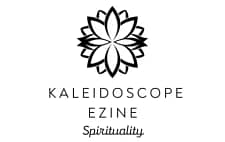 Relationships are the most important aspect of our life. Simply put, for most people, if relationships are good, life feels good. It also one of the trickiest aspect of life because it takes time to understand what we want from a relationship and how to bridge the gap between our expectations and the reality of the relationship.
Relationships are the most important aspect of our life. Simply put, for most people, if relationships are good, life feels good. It also one of the trickiest aspect of life because it takes time to understand what we want from a relationship and how to bridge the gap between our expectations and the reality of the relationship.
Most relationship problems occur due to lack of understanding or communication. What is being said, how is it being said, what is not being said but being communicated non-verbally, meanings and intentions behind the communications…all this matters. Sadly, we are not taught communication in schools. We are not taught how to relate to fellow humans, we learn from what we see around us.
To have a healthy relationship, we need a few components
1. Awareness,
2. Ability to be present and to listen
3. Emotional healing,
4. Communication skill
5. Consciousness about our own needs and wants,
6. Knowing if the other person is capable of a healthy relationship.
7. Wanting to relate
1. Awareness
Awareness comes from a practice of watching our own thoughts, emotions, actions, behaviours, body reactions, feelings etc. Awareness means we are in the present moment witness to all that’s going on in and around us. It is important because without awareness, we can never understand what we and the other are feeling or expecting and we cannot respond to the situation. Rather we will always be reacting from our learned responses.
2. Ability to be present and to listen
Being present for someone else is the most crucial substance for creating a healthy bond. There is a huge difference between “being there” and “being present”. Being present does not mean being there always and not having a life of your own. It means when you are there with the person, you are there with them physically, mentally and emotionally. You are listening to them to understand them. You give them hundred percent attention. The reason it is said that love disappears from old relationships or marriage is because we stop being present, we are not with our partner hundred percent. Being in love means the other is totally present with us.
3. Emotional healing
Sometimes being present for others becomes a problem because we are emotionally triggered by them – irritated or angry or disappointed. But we choose to put aside our feelings and pretend to be in a relationship. This kind of a relating is most damaging to mental and emotional health because the subconscious knows that it’s not the truth. So continuous emotional healing is really important to keep a relationship fresh, healthy and growing. Your emotions are your responsibility. They were not given to you by anyone no matter how untrue this feels. If someone’s action triggered an emotion in you, it means the trigger in inside you. Don’t expect others to behave the way you want. That would mean you are trying to control them, how they behave and how they make you feel. Where there is control, there cannot be any love. So heal your emotional triggers using EFT or Journey method. They are immensely powerful and very healing. It helps you handle your emotions in a healthy manner and not spill them on to your loved one.
4. Communication skill
Communicate responsibly. If there is something that your partner has done that feels hurtful to you, communicate gently but assertively. There is no need for aggression here. Take the responsibility of emotions. Communicate in conflict situations in a way that are not blaming. For example, “When you do this, I feel hurt.” Or something very direct, “I notice there has been some tension between us, what is really going on?” Always remember – communication is the responsibility of the sender. If someone isn’t able to understand you, its not because they are dumb. Maybe you need to talk to them in a way they will understand. Also there is never a moment when you are not communicating. Even when you are sitting quietly, you are communicating loads of information. So any hidden anger or grudges will be communicated even if you pretend that all is fine. So open up and talk it out.
5. Consciousness about our own needs and wants
Being aware and conscious of your own needs and wants is a must if you want to have a healthy and beautiful relationship. If you don’t know what to order in a restaurant, no matter what dish is served to you, you will always complain. So find out about yourself. How you want attention, what do you like to do with your partner, what kind of qualities would you want in them, what are the most important and the least important values for you in a person. It is important that your value systems (i.e. what’s important for you and how you want your life to be) match with your partner for you to have a healthy relationship with them.
6. Knowing if the other person is capable of a healthy relationship
You will also have to know if what you are expecting from your partner is practical and doable for them or not. If your partner is not capable of having deep conversations because of their own emotional triggers, expecting that out of them and then being disappointed and blaming them for that is not going to do any good to your relationship. Get a reality check. See if they are open to healing themselves, if not, find someone else.
7. Wanting to relate
Last, but not the least, you have to WANT TO relate to someone in order to build a relationship. Forcing yourself to fit into a role that you are not meant for or forcing someone else to do that is a recipe for disaster. If you are an introvert but you want to be an extrovert for your partner, its not going to work for long.


